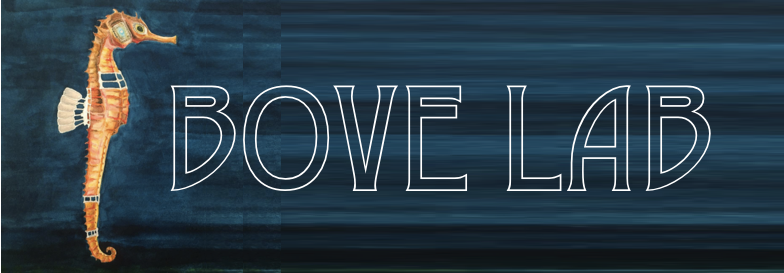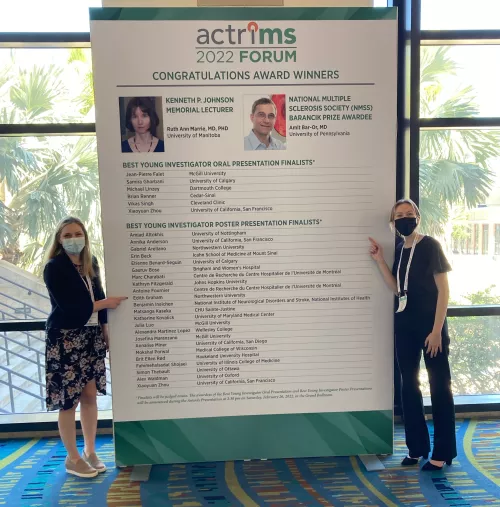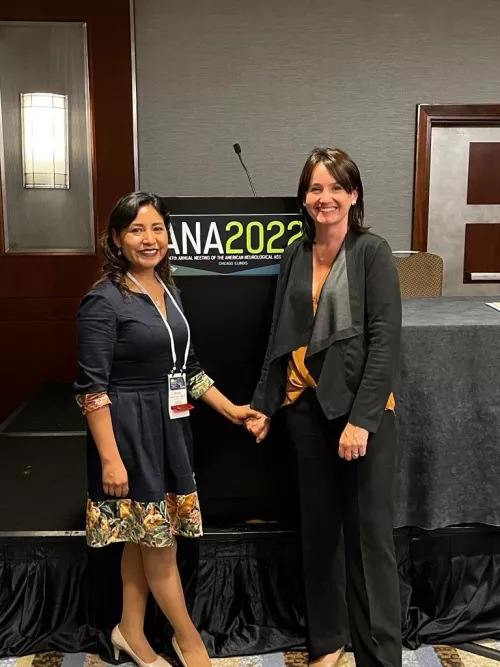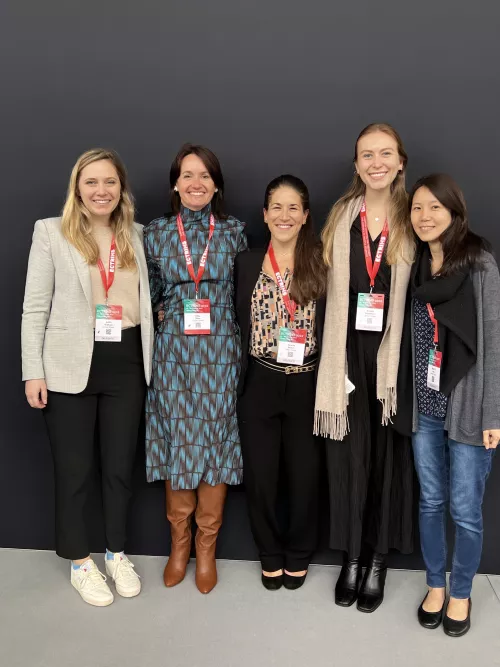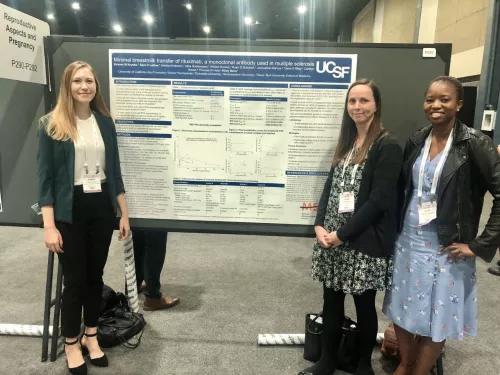Conferences
2022
ACTRIMS 2022
Our lab had two finalist posters at ACTRIMS this year!
ANA 2022
Dr. Bove talked about sex differences in neurology globally at an exciting panel on neurology internationally! Here with Dr. Maritza Pintado-Caipa.
ECTRIMS 2022
Our lab represented in the digital health and women's health arenas! From left-to-right: Dr. Edith Graham, Dr. Riley Bove, Dr. Valerie Block, Annika Anderson, and Dr. Wan-Yu Hsu.
2020
ACTRIMS 2020
Minimal breast milk transfer of rituximab, a monoclonal antibody used in neurological conditions.
Publications
Recent
Reproductive Rights in Neurology—The Supreme Court's Impact on All of Us: Reproductive rights are not front and center of Neurology training but, treating neurology patients according to modern standards of care depends on their access to reproductive rights.
Remote Observational Research for Multiple Sclerosis: A Natural Experiment: The COVID19 pandemic forced change across the health system, including adoption of telehealth for care and research. This provided an unexpected opportunity for us to compare the costs and benefits of in-person vs. remote research.
Remote Assessments of Hand Function in Neurological Disorders: Systematic Review: Remote assessments can be valid and reliable tools for measuring hand function impairments in chronic neurological diseases and that doing so is clinically feasible and acceptable to patients. We highlight the current potential to implement remote assessments via telerehabilitation and smartphone- or tablet-based apps. As interventions for ambulation and lower extremity function become increasingly robust, these methods will allow clinicians to reliably assess multiple domains of hand function to monitor disease progression and response to interventions.
Clinical and Radiologic Disease Activity in Pregnancy and Postpartum in MS: Increased MS-related clinical relapse activity after pregnancy has been reported for over 20 years,6 but its association with MRI activity has been incompletely assessed. In this study of women with low disability, we advance these clinical findings by showing that these clinical symptoms were significantly associated with MRI activity (vs non-demyelinating etiologies) and that radiologic activity was significantly increased in the postpartum period compared with the year before conception.
Application of an Adaptive, Digital, Game-Based Approach for Cognitive Assessment in Multiple Sclerosis: Observational Study: The application of digital cognitive assessments provides flexibility, as the testing can be performed in different settings, including patients’ homes, which substantially improves access to these assessments for patients who may face scheduling, geographic, or economic barriers in accessing standard forms of cognitive assessment. The development of digital cognitive assessments helps patients effectively detect cognitive impairment and navigate cognition-related problems in their daily living.
All Publications
